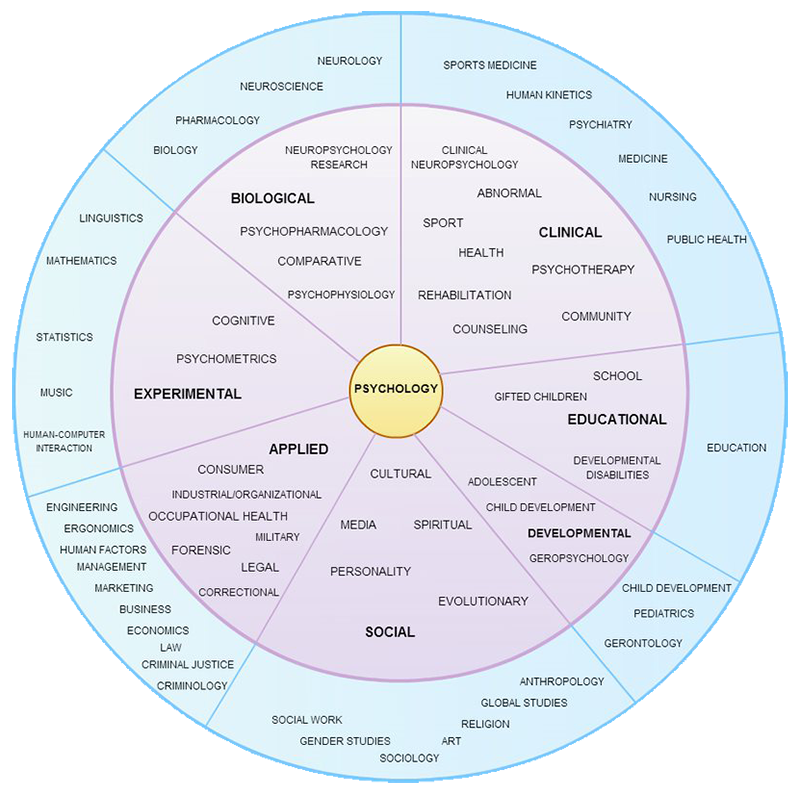Discover PsycInfo
Find relevant research documents for any journal, topic, or author.
Select a field of psychology
Click on a field of psychology to start your discovery of over 5.7 million PsycInfo records.

Select a journal
- View the articles for a journal, or link over to the "Explore Journal" page for the journal.
- Search through the list of journals based on Journal Title and general topics covered in the journal.
FIELD: Education
Sort the
journals
Environmental
Education Research
- Items Covered: 1,026
- Number of Citations: 8,235
- Articles sent to you: 33
- Topical Coverage: Neuroscience; Animals; Comparative Psychology
American
Psychologist
- Items Covered: 269
- Number of Citations: 3,205
- Articles sent to you: 56
- Topical Coverage: Activism; Advocacy; Applied Psychology
Behavioral
Neuroscience
- Items Covered: 28
- Number of Citations: 321
- Articles sent to you: 42
- Topical Coverage: Neuroscience; Animals; Comparative Psychology
Sport,
Exercise, and
Performance Psychology
- Items Covered: 18
- Number of Citations: 261
- Articles sent to you: 0
- Topical Coverage: Sports; Mental Health; Coaches; Well Being; Athletes; Athletic Performance; Goals; Awareness
Select an article
- View article details and related content.
JOURNAL: American Psychologist
Sort the
articles
Menor-Campos,
David José; Hawkins,
Roxanne; Williams,
Joanne M.
Anthrozoös, Vol 32(6), Dec 2019
Anthrozoös, Vol 32(6), Dec 2019
Japanese
animation,
anime, has long
been
regarded as a
niche culture
reserved for
anime otaku in
Japan. The
word anime otaku
refers to
individuals who
spend most of
their time
alone at home,
watching anime.
However, in
recent years,
prototypical
anime otaku have
changed their
behavioral
patterns,
resulting in a
new movement
called anime
pilgrimage.
Anime
pilgrimage
involves
traveling to
locations that
resemble
particular
scenes in anime
pieces, even
though the
locations
themselves
may be
ordinary places.
The authors
constructed two
models to
describe the
determinants of
visit intention
and destination
loyalty
based on
research into
ordinary and
film tourism.
The results
suggested that,
during the
pre-tour period,
otaku are
motivated by the
desire for
interaction with
other otaku and
the wish to
visit a new
location.
Moreover, they
are also seeking
to interact with
the local
people,
and such
experiences
result in higher
destination
loyalty
during the
post-tour
period.
(PsycInfo
Database Record
(c) 2021 APA,
all rights
reserved)
Laugrand,
Frédéric; Simon
Lionel
Anthropologica, Vol 62(1), 2020
Anthropologica, Vol 62(1), 2020
The COVID-19
pandemic has
disrupted the
lives of many
high school and
college
students, and
recent studies
indicate
increased
emotional
distress in this
age group. We
examined
associations
among 10
pandemic-related
concerns, 21
affects, and
three
self-regulatory
skills using
cross-sectional
online survey
data from high
school and
college students
in two regions
of the United
States (Study 1:
N = 392 and
Study 2: N =
1,200). Network
models of
regularized
partial
correlation
networks
revealed both
equifinal and
multifinal
pathways between
specific
COVID-19
concerns and
positive and
negative
affects. In both
studies, concern
about conflict
with parents was
the
pandemic-related
concern most
strongly
connected to
negative
affects,
mindfulness was
most strongly
connected to
pandemic-related
concerns and
negative
affects, and
self-compassion
was most
strongly
connected to
positive
affects. These
findings provide
greater insight
into risk and
resilience
factors
associated with
students’
emotional
well-being
during the first
year of the
COVID-19
pandemic.
(PsycInfo
Database Record
(c) 2022 APA,
all rights
reserved)
Burgoyne, Alexander
P.; Tsukahara, Jason
S.; Draheim,
Christopher; Engle,
Randall
W.
Learning and Motivation, Vol 72, Nov 2020
Learning and Motivation, Vol 72, Nov 2020
The American
Psychological
Association
(APA) developed
this clinical
practice
guideline to
provide
recommendations
for the
treatment of
depressive
disorders,
including major
depression,
subsyndromal
depression, and
persistent
depressive
disorder. It
addresses three
developmental
cohorts:
adolescents,
general adults,
and older adults
(ages 60 and
over). Ten
systematic
reviews and
meta-analyses,
along with other
literature and
observations
from
practitioners
and patients,
served as the
basis for the
guideline. The
guideline
development
panel consisted
of health
professionals
from psychology,
psychiatry, and
family medicine
as well as
community
members who
self-identified
as having had
depression. The
panel examined
the efficacy of
psychological
treatments and
of complementary
and alternative
medicine
treatments. It
also examined
comparative
effectiveness
among
psychological
treatments, by
themselves and
in combination
with
pharmacotherapy,
and comparative
effectiveness of
psychological
treatments in
relation to
pharmacotherapy
and to
complementary
and alternative
treatments. The
panel made
recommendations
for treatment of
depression in
adolescents,
adults, and
older adults but
did not make
treatment
recommendations
specific to
children. These
recommendations,
presented in
detail in the
guideline, are
summarized here.
The target
audience for the
guideline
includes
clinicians,
researchers,
patients, family
members, and
policymakers.
(PsycInfo
Database Record
(c) 2022 APA,
all rights
reserved)
Elvers, Greg C.;
Lawriw, Alexander
N.
Anthrozoös, Vol 32(5), Nov 2019
Anthrozoös, Vol 32(5), Nov 2019
Bao et al.
(2022) criticize
the method,
analysis, and
conclusion of
Hamamura et al.
(2021). In this
reply, we
respond to their
three critiques.
We trust that
this
constructive
exchange further
facilitates our
understanding of
cultural
changes.
(PsycInfo
Database Record
(c) 2022 APA,
all rights
reserved)
Topics
Authors
Thanks just now
Your feedback has been sent.